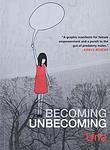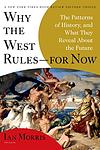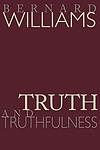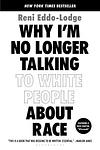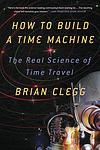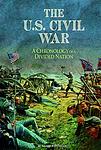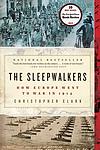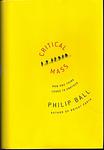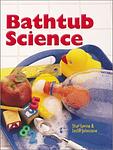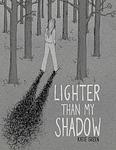The Greatest British "Nonfiction" Books Since 2000
Click to learn how this list is calculated.
This list represents a comprehensive and trusted collection of the greatest books. Developed through a specialized algorithm, it brings together 290 'best of' book lists to form a definitive guide to the world's most acclaimed books. For those interested in how these books are chosen, additional details can be found on the rankings page.
Genres
Countries
Date Range
Reading Statistics
Click the button below to see how many of these books you've read!
Download
If you're interested in downloading this list as a CSV file for use in a spreadsheet application, you can easily do so by clicking the button below. Please note that to ensure a manageable file size and faster download, the CSV will include details for only the first 500 books.
Download-
26. The Shock Of The Old by David Edgerton
This book challenges the conventional narratives of innovation and technological progress, arguing that society's focus on the 'new' overlooks the importance and impact of older technologies that continue to shape our world. By examining how outdated technologies, such as the rickshaw or the propeller plane, have persisted and even thrived alongside modern advancements, the author presents a compelling case for reevaluating our understanding of technological change. Through a series of insightful case studies, the work encourages readers to reconsider the ways in which they think about technology's role in history and its influence on the present and future.
-
27. Becoming Unbecoming by Una
This graphic novel is a poignant exploration of gender violence, identity, and the journey of healing. It intertwines the author's personal narrative of growing up in the 1970s in Northern England with the historical backdrop of the Yorkshire Ripper, a notorious serial killer targeting women. As the author grapples with her own experiences of sexual abuse and societal pressures, the book delves into themes of misogyny, shame, and the societal tendency to blame victims rather than perpetrators. Through powerful illustrations and candid prose, it offers a deeply personal account of the struggle to overcome trauma and the cultural silence surrounding sexual violence.
-
28. Through the Language Glass: Why the World Looks Different in Other Languages by Guy Deutscher
This book explores the link between language and perception, challenging the conventional belief that languages are only tools for describing reality and do not influence the way we perceive the world. The author delves into how different languages can shape the way their speakers understand and interact with their surroundings, arguing that linguistic differences can significantly impact cognition and perception. The book combines linguistic analysis, cultural history, and cognitive science to provide a fascinating examination of how our mother tongue can affect our cognitive processes, including color perception and spatial orientation.
-
29. Why the West Rules - For Now: The Patterns of History, and What They Reveal About the Future by Ian Morris
This book is a comprehensive exploration of the historical and cultural patterns that have led to Western dominance in the world. The author uses a broad range of evidence from archaeology, genetics, and linguistics to trace the development of East and West from prehistoric times to the present, arguing that physical geography, rather than culture, religion, or great men, is the primary driving force behind the rise of the West. The book also offers a forecast for the future, predicting a shift in global power from the West to the East.
-
30. Truth And Truthfulness by Bernard Williams
This philosophical work explores the importance of truth and the practice of truthfulness in society, arguing against the skepticism and relativism that question the value and possibility of truth. The author delves into the concepts of accuracy and sincerity, which he identifies as the two basic virtues of truth, and examines how these virtues are essential to human practices and institutions. Through a blend of historical analysis and philosophical inquiry, the book defends the indispensability of truth and truthfulness, while also acknowledging the challenges and complexities involved in upholding these ideals in the modern world. The author's insightful analysis aims to reconcile the demands of truth with the necessities of social cohesion, offering a compelling case for why truth and truthfulness matter profoundly in both personal and public life.
-
31. Midnight In Chernobyl by Adam Higginbotham
"Midnight In Chernobyl" is a non-fiction book that tells the story of the 1986 Chernobyl nuclear disaster. The book provides a detailed account of the events leading up to the explosion, the immediate aftermath, and the long-term effects of the disaster. It also explores the political and social context of Soviet Ukraine at the time, and the impact that the disaster had on the country and the world. The book draws on interviews with survivors, officials, and experts, as well as archival documents and scientific research, to provide a comprehensive and compelling narrative of one of the worst nuclear accidents in history.
-
32. Why I'm No Longer Talking To White People About Race by Reni Eddo-Lodge, Ana Camallonga
The book in question is a powerful and thought-provoking exploration of race, structural racism, and the black experience in a predominantly white society. It delves into the historical roots of racial inequality, the failures of the mainstream feminist movement to address intersectionality, and the ongoing challenges faced by people of color in the realms of politics, employment, and the justice system. The author articulately expresses her frustration with the lack of understanding and denial of systemic racism by white individuals, which has led her to the titular conclusion. Through personal narrative and incisive analysis, the book serves as a call to action for meaningful conversation and systemic change.
-
33. How To Build A Time Machine by Paul Davies
The book is a fascinating exploration of the theoretical underpinnings and scientific principles that suggest the possibility of time travel. It delves into the realms of physics, particularly Einstein's theory of relativity, and examines how wormholes and cosmic strings could potentially be manipulated to create a pathway through time. The author, a renowned physicist, presents complex concepts in an accessible manner, discussing both the technical aspects and the philosophical implications of time travel. While acknowledging the immense technical challenges and the current limitations of our understanding, the book serves as an intriguing guide to the science behind one of the most captivating and enduring fantasies of human imagination.
-
34. A Brief History Of Neoliberalism by David Harvey
This book provides a critical examination of neoliberalism, tracing its origins and development from the late 20th century to its pervasive influence on global economics and politics. The author argues that neoliberalism, a doctrine advocating for free markets, deregulation, and reduction in government spending, has concentrated wealth and power in the hands of a few, leading to increased social inequality and environmental degradation. Through a detailed analysis of various countries' experiences, the book highlights the consequences of neoliberal policies and calls for a reevaluation of the current economic paradigm to address its shortcomings and create a more equitable and sustainable future.
-
35. Arguably: Essays by Christopher Hitchens
"Arguably: Essays" is a collection of essays written by Christopher Hitchens, covering topics ranging from politics, literature, and religion to popular culture, sports, and travel. Hitchens was known for his sharp wit, critical thinking, and fearless approach to controversial issues, and this book showcases his best writing over the years. The essays are thought-provoking, insightful, and often humorous, making for an engaging read that challenges readers to think deeply about the world around them.
-
36. A World On Fire:Britain’s Crucial Role In The American Civil War by Amanda Kolpin, Amanda Peterson, Susan S. Wittman
"A World on Fire" is a comprehensive account of Britain's involvement in the American Civil War. The book explores the political, economic, and social factors that influenced Britain's decision to remain neutral, despite strong sympathies for the Confederacy. It also delves into the impact of the war on British society, including the role of British citizens in the conflict and the effects of the Union blockade on British trade. The authors provide a detailed and engaging narrative of this often-overlooked aspect of Civil War history.
-
37. A History of the World in 100 Objects by Neil MacGregor
This book offers a unique perspective on world history, telling the story of humanity through the examination of 100 man-made objects. The author, a museum director, uses items from the British Museum, ranging from a 2 million-year-old Olduvai stone cutting tool to a contemporary credit card, to explore various themes such as trade, religion, art, science, and politics. The book provides a fascinating lens through which to view the evolution of human civilization.
-
38. The Sleepwalkers: How Europe Went To War In 1914 by Christopher Clark
"The Sleepwalkers" by Christopher Clark is a comprehensive account of the events leading up to World War I. The book argues that the war was not caused by any one nation or individual, but rather a combination of factors including nationalism, alliances, and miscommunication. Clark explores the complex political landscape of Europe in the early 20th century and the actions of key players such as Kaiser Wilhelm II and Archduke Franz Ferdinand. The book provides a detailed analysis of the events leading up to the war and challenges traditional narratives of blame and responsibility.
-
39. Critical Mass: How One Thing Leads To Another by Philip Ball
"Critical Mass: How One Thing Leads To Another" explores the concept of criticality and its pervasive influence in various natural and human-made systems. Through a captivating blend of scientific explanations and real-world examples, the author delves into the interconnectedness of phenomena, illustrating how small changes can lead to dramatic and unpredictable outcomes. From the behavior of avalanches and forest fires to the dynamics of financial markets and social networks, this thought-provoking book sheds light on the underlying principles that govern our complex world.
-
40. Penelope Fitzgerald: A Life by Hermione Lee
"Penelope Fitzgerald: A Life" by Hermione Lee is a biography of the English novelist and poet Penelope Fitzgerald. The book covers Fitzgerald's life from her childhood to her death, including her career as a teacher, her time working for the BBC, and her success as a writer. Lee delves into Fitzgerald's personal life, including her marriages and the struggles she faced as a single mother. The biography also explores Fitzgerald's writing process and the themes that run through her novels, including the importance of memory and the complexities of human relationships.
-
41. Reliable Essays: The Best of Clive James by Clive James
This book is a collection of essays from a renowned critic, covering a wide range of topics from television to literature and reflecting his sharp wit and insightful observations. The author's unique voice shines through in each piece, whether he's discussing the state of modern television or the nuances of a particular piece of literature. His commentary is both thought-provoking and entertaining, making this collection a must-read for fans of cultural criticism.
-
42. Schott's Original Miscellany by Ben Schott
This book is a unique and quirky collection of interesting, unusual and random facts, trivia, and esoteric knowledge. It covers a wide range of topics from the scientific to the cultural, including obscure historical events, little-known facts about famous people, unusual customs, and oddities from around the world. The book is presented in a distinctive and engaging style, with a mix of lists, charts, short articles, and other formats, making it a fascinating and entertaining read.
-
43. 13 Things That Don't Make Sense by Michael Brooks
This book delves into the mysteries and anomalies that challenge our current understanding of science, presenting a thought-provoking exploration of thirteen phenomena that defy explanation by contemporary scientific theories. From the puzzling behavior of the placebo effect to the unaccounted for 'dark matter' that fills the universe, the author navigates through a range of topics that span across various disciplines including biology, physics, and astronomy. Each chapter is dedicated to a different 'thing' that doesn't make sense, inviting readers to ponder the limitations of human knowledge and the potential for future scientific breakthroughs. The book serves as a compelling reminder of the mysteries that remain unsolved and the ongoing quest for knowledge.
-
44. Sustainable Energy by David J.C. Mackay
This book offers a comprehensive exploration of the potential for sustainable energy sources to replace fossil fuels, addressing the technical, practical, and environmental challenges involved. The author meticulously quantifies the capabilities of various renewable energy sources, such as wind, solar, and bioenergy, in meeting the world's energy demands in a sustainable manner. Through clear, accessible analysis, the book dispels myths surrounding renewable energy and emphasizes the importance of a balanced approach that includes energy conservation, efficiency, and the development of a diverse mix of renewable energy sources to achieve a sustainable energy future.
-
45. Bathtub Science by Shar Levine
"Bathtub Science" is an engaging children's book that introduces young readers to the fundamentals of science through a series of fun, educational experiments that can be conducted using everyday items found in most homes. The book is designed to make learning interactive and accessible, encouraging children to explore scientific concepts such as density, buoyancy, and surface tension right from the comfort of their own bathrooms. Through easy-to-follow instructions and clear explanations, the book aims to spark curiosity and a love for science in young minds by demonstrating how ordinary materials can reveal extraordinary scientific principles.
-
46. Lighter Than My Shadow by Katie Green
This graphic memoir is a powerful and deeply personal exploration of a young woman's struggle with eating disorders and trauma. Through evocative hand-drawn illustrations, it chronicles her journey from early signs of anorexia in childhood, through years of battle with her inner demons, to eventual recovery. The narrative delves into the complexities of mental health, the impact of abuse, and the resilience of the human spirit. The author's raw honesty and the visual storytelling create an engaging and poignant tale that brings to light the silent suffering of those dealing with similar issues, offering hope and understanding to others on their path to healing.
-
47. Seminary Boy by John Cornwell
"Seminary Boy" is a memoir that delves into the author's experiences as a young boy in the 1950s, who is sent to a Catholic seminary with the hope of becoming a priest. The narrative captures the strict and often harsh realities of seminary life, marked by rigorous discipline, religious fervor, and the struggle to conform to the expectations of the Church. As the author grows up within the confines of this institution, he grapples with his faith, the challenges of adolescence, and the dawning realization of the wider world beyond the seminary walls. This coming-of-age story is a poignant exploration of innocence, belief, and the search for personal identity amidst the backdrop of a changing religious landscape.
-
48. The Spirit Level by Richard Wilkinson
This book presents a compelling argument that income inequality within a society leads to a wide range of social and health problems. The authors use a variety of statistical data from different countries to show that societies with more equal distribution of incomes have better health, fewer social problems such as violence, drug abuse, and mental illness, and are more cohesive than ones in which the gap between the rich and poor is greater. The book challenges the notion that societal problems are inevitable in modern, developed societies and offers a new way of understanding how we can improve the quality of life for all.
-
49. The Rational Optimist by Matt Ridley
This book presents an invigorating perspective on the evolution of human society through the lens of economic and cultural progress. It argues that, contrary to popular pessimism, life has been getting progressively better for most people due to the inherent human tendency to exchange and innovate. The author posits that this process of exchange and specialization has been the driving force behind the remarkable increases in prosperity and quality of life over the centuries. By examining historical trends and data, the narrative challenges the doom-and-gloom outlook, suggesting that rational optimism is not only justified but necessary for continued progress. The book encourages readers to embrace the potential for future advancements and the continued improvement of the human condition through the power of rational thought and optimistic outlook.
-
50. Beyond The Crash by Gordon Brown
In "Beyond The Crash," the author delves into the global financial crisis of 2008, providing an insightful analysis of its causes, consequences, and the urgent need for international cooperation to prevent future economic disasters. Drawing from his experience as a key political figure during the crisis, he offers a unique perspective on the actions taken to stabilize the global economy and outlines a comprehensive plan for sustainable economic recovery. The book emphasizes the importance of global governance reforms, advocating for policies that promote growth, job creation, and equitable distribution of wealth to ensure a more secure and prosperous future for all.
Reading Statistics
Click the button below to see how many of these books you've read!
Download
If you're interested in downloading this list as a CSV file for use in a spreadsheet application, you can easily do so by clicking the button below. Please note that to ensure a manageable file size and faster download, the CSV will include details for only the first 500 books.
Download
